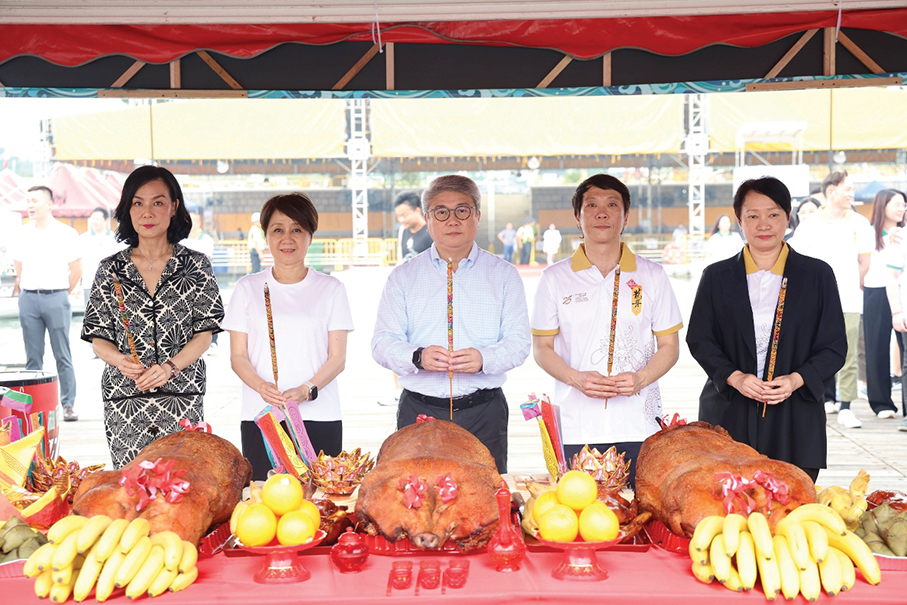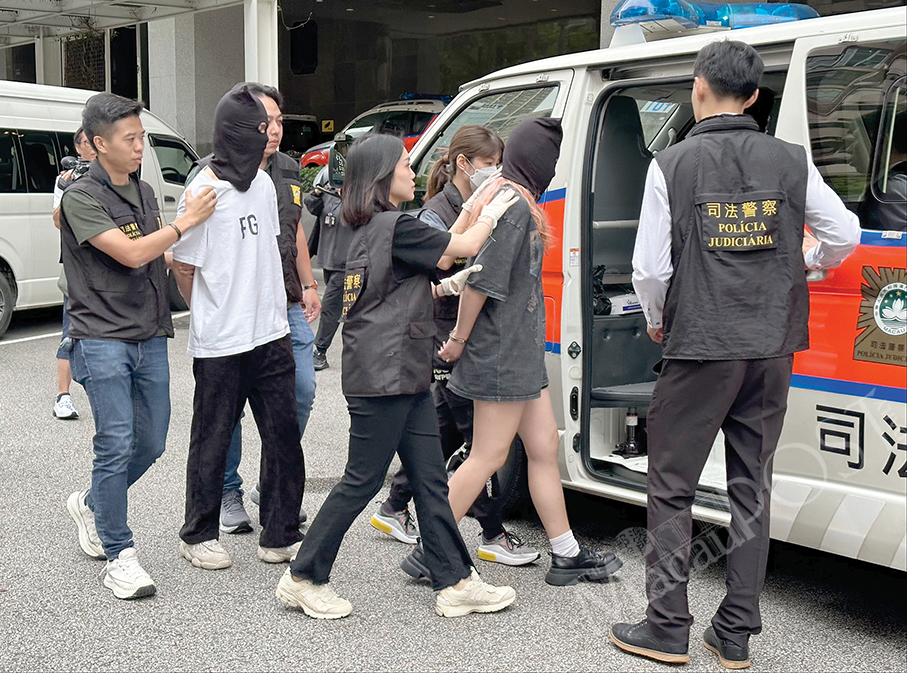The Health Bureau (SSM) said yesterday that the government will decide and announce later this week its new anti-COVID-19 arrangements and measures that will be implemented after the current seven-day COVID-19-control consolidation period, which is slated to end at 11:59 p.m. on Friday.
The bureau also said that the results of the government’s upcoming citywide nucleic acid testing (NAT) drive for everyone, which will be carried out on Saturday and Sunday, will be a key factor for the government to assess and decide the city’s COVID-19 measures for the foreseeable future.
Leong Iek Hou, who heads the Communicable Disease Prevention and Control Division of the Health Bureau, made the remarks during yesterday evening’s daily press conference about the viral menace.
Leong noted that no citywide nucleic acid tests for everyone have been carried out since early this week, because of which only after the upcoming round of mass nucleic acid tests on Saturday and Sunday will the government be able confirm whether hidden COVID-19 cases have been cleared in the community.
Tally reaches 1,816, no community cases for 3 days in row
The latest tally of Macau’s current COVID-19 outbreak, which was detected on June 18, has increased by just two to 1,816, according to a Novel Coronavirus Response and Coordination Centre statement yesterday morning. The two new locally transmitted cases were detected between 00:00 a.m. and 11:59 p.m. on Monday, raising the outbreak tally from 1,814 as of Sunday night to 1,816 as of Monday night.
Neither of the two new local cases reported on Monday were detected in the community. Both were detected in locked-down (Red-Code zone) buildings and medical observation quarantine hotels, the statement said.
It was the third consecutive day that no community cases were detected.
The government started a seven-day period aiming to consolidate Macau’s achievements in its battle against the current COVID-19 on Saturday last week. The ongoing seven-day consolidation period came after Macau went through a 12-day period that enabled the city to maintain a state of “relatively static” movement of people.
During the 12-day “relatively static” period, which ran from July 11 to Friday last week, all businesses were ordered to close except those essential for maintaining civil society’s normal functioning or residents’ daily lives. During the ongoing seven-day consolidation period, a wide range of non-essential businesses have been allowed to resume operations in a limited way provided that they comply with the government’s special COVID-19 prevention and control measures.
However, restaurants’ dine-in services continue to be prohibited during the current consolidation period.
The government, which decided last week to run a COVID-19-control consolidation period provisionally for one week, has hinted that it may extend the period for another week.
While the government is not carrying out citywide nucleic acid tests for everyone this week until the weekend when a round of mass tests will be carried out on Saturday and Sunday, regular mandatory nucleic acid tests for various high-risk key groups of people are being carried, namely daily tests for those in high-risk key occupations, tests every other day for all those who leave home for work but are not in key occupations, and tests for those living or working in certain neighbourhoods classified as high-risk key areas.
No community cases for 3 days still too short to judge
During yesterday’s press conference, Leong underlined that the government will decide whether to extend the ongoing consolidation period in line with the city’s latest COVID-19 developments.
Leong said that the government will constantly assess the city’s latest COVID-19 situation, expecting to decide and announce later this week its new COVID-19 arrangements and measures for “the next phase” of its ongoing battle against the current COVID-19 outbreak.
Leong underlined that although Macau has had no COVID-19 community cases for three days in a row, it is still a very short period of time because of which the government still cannot conclude whether the city has become free from the risk of COVID-19 community transmissions still occurring, she said.
In addition, Leong said, the government has only been carrying out regular mandatory nucleic acid tests this week for those in key occupations, those living or working in key areas, and those who leave home for work, without carrying out citywide nucleic acid tests for everyone. Consequently, Leong said, for the time being the government is unable to confirm whether Macau has “completely” reached zero cases in the community.
Only after the upcoming Saturday-Sunday citywide NAT round has been carried out, Leong said, will the government be able to have a good understanding of whether hidden COVID-19 community cases have been cleared in the community.
Leong said that if Macau continues to have zero COVID-19 community cases every day and no positive results are detected in the upcoming citywide NAT round, the government would be more strongly convinced that Macau has become safe from the risk of having an outbreak occur again.
The results of the upcoming citywide NAT round will be a key factor for the government to assess and determine new COVID-19 measures for the foreseeable future, Leong said.
Leong said that even if no positive results are detected in the upcoming mass NAT round, COVID-19 prevention and control measures could only be slowly and gradually relaxed, meaning that the city could still not instantly return to the normal period that had been in force before the current outbreak.
2 longest incubation periods
Meanwhile, Leong also noted that according to epidemiology, a place that has been hit by an outbreak of an infectious disease can be considered completely safe from risk if no new cases have been reported for a period equivalent to the two longest incubation periods of the respective infectious disease.
Leong noted that the incubation period of the Omicron BA.5 subvariant normally lasts between three and five days, while occasionally carriers could have a longer incubation period up to seven days.
However, Leong said that COVID-19 measures could be carefully and gradually relaxed before the two longest incubation periods have passed. But she was quick to add that “one more day no community cases have been reported, the safer the place is”.

Leong Iek Hou, who heads the Health Bureau’s (SSM) Communicable Disease Prevention and Control Division, addresses yesterday’s press conference about the city’s current COVID-19 outbreak. Photo: GCS









